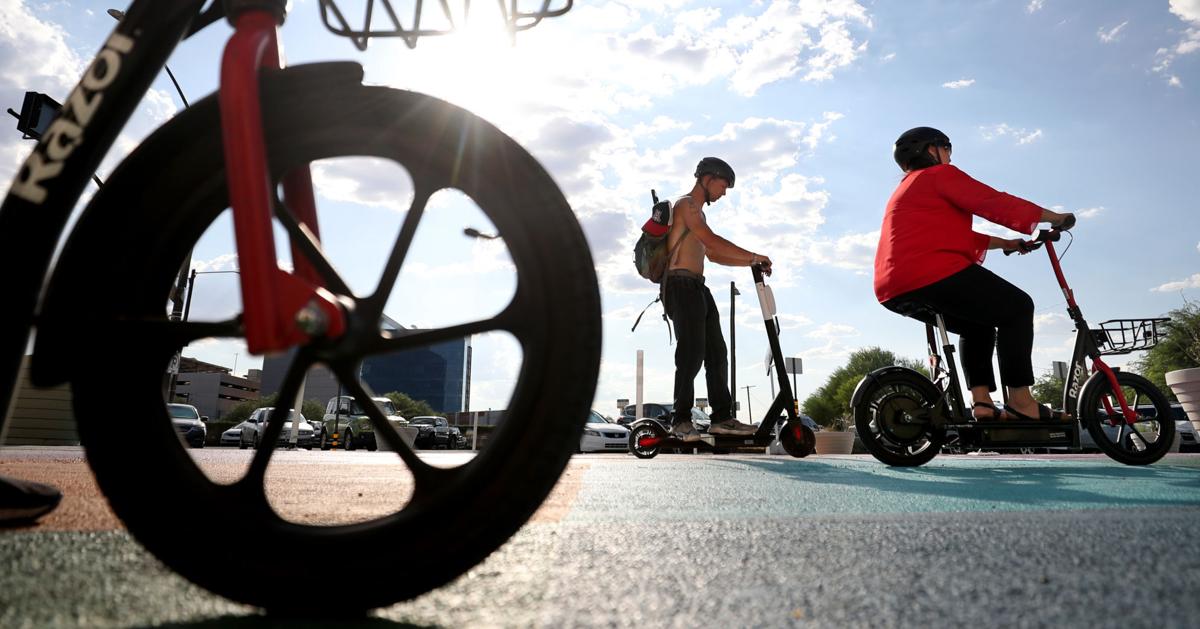The Tucson City Council voted Wednesday to extend Tucson’s electric scooter pilot program for an additional six months, even as officials express concern over the rise in coronavirus cases among college students since classes resumed last month.
The pilot program, which was originally extended through Sept. 11, was greatly impacted by the pandemic, resulting in an 82% decrease in rides between March and August.
Tucson officials said they need more time to assess the benefits and issues of implementing the program long-term.
In response to the pandemic, one of the scooter companies, Bird, temporarily suspended e-scooter operations in March and has not re-launched the service. The other company, Razor, continued operations and implemented enhanced cleaning of scooter surfaces, free scooter trips for essential workers and adjusted sick leave policies for its staff.
Councilman Steve Kozachik expressed concern about the program extension, arguing that it should be suspended until a plan is implemented to help control the spread of COVID-19 among University of Arizona students, who are regular users of the e-scooters.
“We just had 30,000 UA students return to the area, bars that sell food are back open, and COVID is now a known hot spot around campus,” Kozachik said. “Allowing scooters to continue operating while we’re so concerned about community spread that we’re not even opening outdoor swimming pools makes no sense. The mayor and council should have shown some consistency and at least put a hold on this pilot program until COVID calms down.”
As of Wednesday, the UA has reported 709 positive cases among students, faculty and staff, which does not include a large number of off-campus students who are not required by the university to test for the virus.
Officials at Tucson’s Department of Transportation and Mobility, however, hope the program extension will allow them to continue to assess the value of the program for the community.
“While scooter trips were down over the past 5 months, Tucson experienced steady ridership, leading us to believe that scooters are being used for trips that support people’s daily lives, such as access to grocery stores, jobs, pharmacies, and other vital services,” Assistant City Manager Albert Elias wrote in a Sept. 9 memo.
The city has collected over $77,000 in application fees since the program began last September. The transportation department recommended the revenue be applied to installing preferred parking locations and improving infrastructure to create safer places for people to ride.





